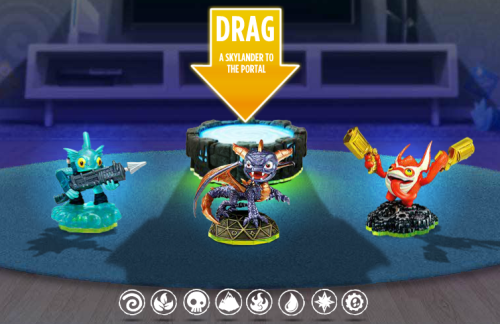
For years, Hollywood has tried and failed to get video game publishers to let them license their most popular titles (like Call of Duty and Grand Theft Auto), but top publishers like Activision and Rockstar Games have begged off, believing their franchises to be worth far more than the potential downside of any movie incarnation. After all, in its first weekend in release, GTA IV posted more than $500 million in sales — and that was back in 2008.
In light of Hollywood’s miserable record of video game adaptations (and vice versa, game developers’ shovelware adaptations of movies), I think Ubisoft is right to demand as much control over a movie version of their Assassin’s Creed franchise as possible, and Sony is smart to give it to them since it reportedly includes a notable investment in story development that will offset some of their financial risk.
It’s Transmedia 101, really: s/he who owns the IP, owns the future. And the profits.
Marvel Comics learned that lesson the hard way when their cut of the hugely successful X-Men and Spider-Man movies was far smaller than they’d have liked, and the embarrassingly awful Elektra was a financial and critical flop, so they invested $525 million back in 2005 to establish their own film unit, ensuring full control over the B- and C-list likes of Captain America, The Avengers, Nick Fury, Black Panther, Ant-Man, Cloak & Dagger, Dr. Strange, Hawkeye, Power Pack, and Shang-Chi.
Buried in there under “The Avengers” was Iron Man, whose first two films alone grossed more than $1B worldwide in theaters, establishing the onscreen storyworld that positioned fellow B-listers Thor and Captain America for strong box office returns this past summer, and set the stage for what will likely be one of the biggest summer movies of 2012.
It will be interesting to see what other publisher can successfully go the Marvel route; with a $2B+ worldwide box office already in for the Avengers’ on-screen storyworld (one that still bizarrely lives in total isolation from the comics), I’m guessing several will make the attempt within the next 2-3 years.
Because Marvel’s situation is relatively unique among book publishers in that they actually own their IP, and licensing was already a strong revenue stream for them, it’s probably more likely that a game publisher will successfully make that jump first, while book publishers will continue to seek out partnerships until they can ramp up their own original IP development. (eg: Scholastic’s oft-referenced The 39 Clues.)
Two gaming franchises I think have some serious transmedia potential are Bethesda’s The Elder Scrolls and Activision’s Skylanders, though you might be surprised by which one I think has the most potential.
Multiple Entry Points are Critical
When Dungeons and Dragons Online crapped out on me a few months back, I decided to check out Steam to find an alternative, buying The Elder Scrolls IV: Oblivion, a franchise I was already familiar with from The Elder Scrolls III on Xbox, and ended up deeply immersed in it for a few weeks. (aka, several nights playing until 2am!) While I was playing it, Steam kept putting some great deals in front of me for other games every time I finished up a session, and I ended up buying Civilization V and Star Wars: Empire at War, too.
All three have been a lot of fun to play, and while Elder Scrolls started out as my favorite, I found it difficult to reconnect with after a few weeks’ break playing the other games, losing track of where I was in the story. One of the downsides of single-player RPGs, even somewhat non-linear ones like TES that offer a deep story and relatively open world to play in, is there’s pretty much only one entry point — the beginning of the game itself.
Pop Quiz: Name two major characters from The Elder Scrolls and the actors you think should play them?
Unlike D&D or Star Wars, The Elder Scrolls’ storyworld is relatively one-dimensional; with the exception of an impressive, unofficial wiki and two recent novels, it’s really just a setting in which a few amazing games have been created and lacks any other significant entry points to augment that gaming experience, or that might appeal to non-gaming fans of the fantasy genre. While it certainly has the depth to support movies, novels, comics, etc., there aren’t any notable characters to build upon, so its opportunities are currently far more incremental than expansive, and I wouldn’t make any serious bets on a movie or HBO series coming out of it anytime soon.

On the other hand, Skylanders, the new multi-platform franchise from Activision, has amazing potential right out of the gate to be the next Pokemon, one of the most underrated transmedia success stories ever.
The game itself is a surprisingly well-reviewed, family-friendly, one- or two-player platformer that distinguishes itself in a number of ways, not the least of which is that it’s truly cross-platform, recognizing that there is a physical component to social gaming. In Skylanders, you can take your favorite characters from your Wii version of the game over to your friend’s Xbox or PS3 or 3DS or PC versions, because all of its stats and data are saved in the base of the physical action figure itself.
That’s the real beauty of Skylanders; it’s not just that it’s a fun game (it really is; my kids and I have been loving it for the past three weeks, and I sometimes even play it without them! Shhh…), but that it’s more than “just” a video game. There’s a compelling storyworld underneath it and Activision has been very savvy about how to leverage it from the start.
While Spyro is loosely branded as the lead character (sort of Skylanders’ Pikachu, though to a much lesser degree), it’s really an ensemble cast that features a variety of engaging characters, each with their own personalities, back stories, and strengths, all of whom could easily make the jump into other media. While cartoons and comics are perhaps the most obvious, it’s interesting that Activision went with the toy angle first — and they really are cool toys in their own right — and their fledgling Webkins-esque website adds another layer of engagement that builds upon them.
So stories and games are intimately connected because they’re two sides of the same impulse. Stories give rise to play, and play gives rise to stories. Think of Star Wars, and all those action figures, and the fan fiction that came out of it–story transmuted to play and then to story again.
My 9-year-old daughter spends more time playing with the toys than she does the video game, and I’ve noticed her visiting Skylanders.com more often than Webkins, despite having just gotten a premium account for the latter for her birthday last month.
Of course, all of the coolest transmedia extension possibilities are moot if the game isn’t good, and I can’t praise Skylanders enough. Beyond the main story’s adventure, there’s also a separate two-player Battle Arena that’s effectively Super Smash Bros. for Skylanders, and could arguably have been a standalone game in its own right.
Replayability is another area where it excels. While it is often a side note in gaming reviews, you might not realize how important replayability is until your new, 3-week old Wii (which replaced your original, 3-year-old Wii) craps out and all of your data and progress in all of your games is lost! Fortunately, thanks to each Skylanders character retaining its own data — including upgrades, hats, and nickname — even though we had to re-start the adventure from the beginning on both profiles we’re running (yes, I have my own!), we’re doing so with a bunch of characters we’re already invested in, not starting completely from scratch and potentially moving on the next game.
The Gonzalez household is completely hooked on Skylanders: we’ve each bought several additional characters, including the Toys R Us exclusive Legendary Pack, as well as both Adventure Packs; both of my kids have online accounts set up and play there; plus, and more importantly, it’s the one game all three of us play together on a regular basis.
While I can’t think of any gaming angle that would pull my wife into the mix, she’d be far more likely to go to the theater with us for a movie, if for no other reason than our excitement about it.
It will be interesting to watch how things play out for Skylanders over the holiday season, to see if it becomes a sleeper hit or simply an intriguing idea that fails to connect with a wide enough audience, and how Activision responds to that reception. Hopefully they’re taking a stance similar to Marvel and Ubisoft, ensuring as much as possible that whatever comes next matches the quality and appeal of an impressive launch.
Do you like email?
Sign up here to get my bi-weekly "newsletter" and/or receive every new blog post delivered right to your inbox. (Burner emails are fine. I get it!)

